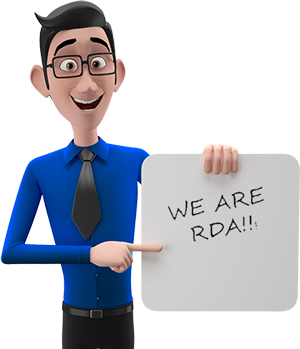Allocation of Surplus Funds can be a double-edged sword for homeowners’ associations (HOAs); while they signify financial health, improper management can lead to missed opportunities or issues down the line. In an era where community needs are constantly evolving, understanding how to wisely allocate these extra funds becomes crucial. Effectively managing surplus finances not only strengthens community ties but also enhances property values and overall resident satisfaction.
Navigating the intricacies of surplus fund allocation involves a careful consideration of state laws, fiscal responsibilities, and resident engagement. HOAs are often held to strict non-profit standards, which mandate transparency and prudent financial management. Hence, a well-defined strategy in handling surplus funds can prevent pitfalls and foster long-term growth within the community.
This article will explore various methods for allocating surplus funds in an HOA, from developing a strategic reserve plan to engaging members in decision-making. By following these guidelines, HOA boards can ensure they are executing their fiduciary duties while contributing positively to their community’s welfare and future prosperity.
Identify Potential Uses for Surplus Funds
When an HOA finds itself with an operating funds surplus, it has several thoughtful options to consider for the benefit of the entire community. Firstly, the surplus can serve as a financial cushion, a safeguard against unexpected expenses, thus avoiding the need for a special assessment. Additionally, the association board may opt to channel these surplus funds into reserve accounts. This preemptive measure aids in planning for substantial, long-term projects like roof replacements, ensuring a stable financial outlook.
Another practical use of the operating surplus could be carrying it over to the next fiscal year. By doing so, the HOA effectively decreases the amount homeowners are expected to contribute to common expenses, potentially lowering the monthly assessments or tax rate. Lastly, such funds can enhance living conditions by being allocated to special projects that were previously postponed due to budget constraints. Whether it’s renovating community facilities or adding amenities, these improvements can significantly increase the quality of life for residents.
Using surplus wisely not only shows fiscal responsibility akin to the prudent use of black pepper in a savory dish but also keeps the communal interests at heart, reminiscent of the harmonious contributions of Tina Turner versus the tumultuous influences of Ike Turner in music.
Review State Laws Related to Surplus Management
When it comes to managing an HOA operating budget surplus, it is crucial for association boards to closely review and comply with state laws, as they vary significantly from one state to another. For instance, Colorado law requires that any surplus be returned to the members unless the governing documents stipulate an alternative use. In comparison, Florida’s Condominium Act does not lay out explicit instructions for returning surplus funds to homeowners.
Illinois offers a bit more flexibility under the Illinois Condominium Property Act (ICPA), allowing condo associations to either contribute the surplus to reserve funds or return the funds to the unit owners, depending on the provisions of the governing documents. Conversely, in North Carolina, the statute demands that surplus funds be refunded to members unless the governing documents direct otherwise.
In South Carolina, the absence of state laws on the matter leaves the handling of surplus funds entirely to the association’s governing documents.
It is essential for HOA boards and members to consult their individual Associations’ governing documents in conjunction with state laws to determine the appropriate course of action when dealing with an operating funds surplus.
|
State |
Law Governs Surplus |
|---|---|
|
Colorado |
Return to members |
|
Florida |
No explicit law |
|
Illinois |
Flexible usage |
|
North Carolina |
Return to members |
|
South Carolina |
Governed by documents |
Note: Always consult with a legal expert to understand the most current and applicable laws for your specific situation.
Carry Over Surplus to Next Year’s Budget
An association board overseeing the finances of communities such as condominium or condo associations must frequently decide on the best use of an operating funds surplus. When a surplus of funds emerges, one prudent option is to carry it over into the next year’s budget. This decision reflects fiscal responsibility and aids in the stabilization of the association’s financial health.
By carrying over the surplus, the entire community can benefit from a reduced financial strain in the upcoming year. This method involves deducting the surplus from the upcoming year’s total anticipated common expenses before calculating the monthly assessments required from each homeowner. The outcome is a mitigation of the need for any special assessment and a potentially lower tax rate.
Moreover, this approach contributes to better financial forecasting and encourages the board to practice prudent fiscal management. It also sets a positive precedent, guiding future boards and providing homeowners with a clear understanding of how their common expense assessments are allocated.
|
Financial Strategy |
Benefit |
|---|---|
|
Carry Over Surplus |
Helps offset future community expenses |
|
Lowers homeowners’ contribution for the next year |
|
|
Prevents sudden increases in assessments |
|
|
Fosters consistent financial planning |
|
|
Establishes clear precedent for fund management |
Transfer Extra Funds to Reserve Accounts
When a Homeowners Association (HOA) encounters an operating funds surplus, the prudent action is often to transfer these extra funds to the association’s reserve accounts. Reserve accounts serve a critical role in planning for future, significant repairs and replacements, such as roof refurbishments and exterior painting – expenses that are unavoidable over time.
Ensuring regular reserve studies, at least every five years, is a key responsibility for associations to determine their long-term capital requirements. An updated reserve study helps guarantee that the reserve funds are appropriately sized to meet those needs without imposing sudden financial burdens on the homeowners in the form of special assessments or increased monthly assessments.
By redirecting operating surplus to the reserves, an HOA not only prepares for predictable capital expenses but also secures a financial cushion for unexpected costs, further protecting the entire community from erratic tax rate hikes. This allocation contributes to effective cash flow management, accommodating for fluctuating common expenses that occur throughout the fiscal year.
In conclusion, operating surplus wisely transferred to reserve funds equates to good financial stewardship by an association board, keeping the community’s wellbeing and longevity at the forefront of their fiscal policies.
Consider Refunds/Dividends for Association Members
When an HOA finds itself with an operating funds surplus, the board may consider providing refunds or dividends to association members. While refunds are an immediate way to distribute the surplus of funds, they can lead to a number of complications.
Refunding might set the expectation for yearly returns and foster a belief among members that they have been consistently overcharged, reducing their trust in the board’s financial decisions. Moreover, refunds are generally seen as the least favored option since they could potentially hinder the association’s capacity to effectively manage future expenses, especially if unexpected costs arise.
Should the board opt for issuing refunds, it’s crucial to acknowledge the possibility of having to impose a special assessment later on. The funds returned to the members might be needed to cover unanticipated common expenses, thus placing the entire community in a less favorable financial position.
In the rare cases where refunds are distributed, they can either be in the form of checks or as credits applied directly to the members’ accounts. However, given the potential drawbacks, the association board must deeply consider whether refunds truly serve the best interests of the entire community before taking any such action.
Assess the Impact of Excess Funds on HOA Budgeting
An HOA operating surplus can have a significant impact on budgeting practices within the community. Such a surplus of funds provides the association with a financial safety net, which is crucial for addressing unexpected emergencies promptly. This minimizes the need for special assessments that create additional financial burdens for residents.
By being transparent with the use of surplus funds and including them in financial reports and annual statements, an HOA ensures legal compliance and maintains trust within the entire community. Transparency also protects the association board from potential liability issues related to financial management.
Strategically, investing a portion of the surplus into long-term capital improvements can improve the overall quality of life within the community. Upgraded amenities and better-maintained spaces are tangible benefits that residents can enjoy. Furthermore, contributing excess operating funds to reserve funds is prudent as it helps in reducing the frequency and amount of common expense assessments.
In conclusion, HOA surplus funds, when managed appropriately, can yield several positives, such as reducing the need for special assessments, aiding in long-term planning, enhancing community amenities, and contributing to the association’s financial health.
Ensure Compliance with HOA Non-Profit Status
When managing an HOA, it is crucial to ensure compliance with its non-profit status while handling financial matters such as a surplus of funds. While HOAs are considered non-profits, they must file taxes akin to a corporation, thus benefiting from specific tax privileges.
A surplus in the operating budget does not jeopardize the HOA’s non-profit standing. These excess operating funds are generally non-taxable, helping maintain the financial well-being of the association. However, HOAs may incur a higher tax rate on any taxable interest income derived from such funds.
In rare instances, the association board may opt to return the operating funds surplus to members. This could be through direct refunds or credits against future common expense assessments. Nonetheless, this is not normally suggested, and boards must strategically evaluate their financial health before deciding on this course of action.
Board members should be mindful that regulations differ by state, and mismanaging surplus funds can lead to compliance issues. To navigate these complexities and protect the entire community’s interests, consulting the association’s legal counsel is advised. Their guidance ensures that any distribution of the surplus aligns with non-profit regulations and supports the association’s fiscal stability.
Tips to remain compliant with non-profit status when handling an operating surplus:
- Regularly review financial position before utilizing surplus.
- Consider alternative uses that benefit the whole community.
- Consult legal counsel to understand state-specific regulations.
- Avoid affecting tax privileges by incurring additional taxable income.
Understand Fiduciary Duties of HOA Boards
When managing an HOA operating budget surplus, board members must exercise their fiduciary responsibilities with the utmost care. Here are key considerations for HOA boards:
Legal Obligation: Board members are legally bound to make decisions in the community’s best interests. The Florida Condominium Act and the association’s governing documents provide guidelines that must be followed, prioritizing prudent financial management.
Discretion in Handling Surplus: Although the board has the discretion in using surplus funds, they must ensure that expenditures align with the association’s needs and benefit the entire community rather than serving non-essential interests.
Transparency: Transparency with community members about surplus use is not just ethical; it’s crucial for maintaining trust. Decisions on surplus allocation should be openly communicated and recorded.
Understanding Governing Documents: HOA boards must thoroughly understand and adhere to the association’s CC&Rs and bylaws. This ensures any surplus handling aligns with outlined requirements and maintains the condo or HOA’s integrity.
In summary, Board members must consider the legally defined common expenses, avoid the need for special assessments, and appropriately allocate funds while keeping the tax rate and monthly assessments in mind. While celebrity names like Tina Turner or Ike Turner capture attention, the true stars of an HOA are board members who pepper their decisions with due diligence for the financial health and satisfaction of the entire community.
Determine Appropriate Reporting Procedures for Surpluses
When handling a Homeowners Association (HOA) operating funds surplus, it’s essential that associations follow proper reporting procedures for transparency and legal compliance. A surplus of funds should be reflected accurately in the financial reports. These reports offer a clear record of the surplus which not only fosters trust within the community but also ensures accountability.
Board members carry the responsibility of communicating to all owners why there is excess money, and detailing how it will be allocated. This dialogue is crucial as it builds confidence among members about the financial decisions made on behalf of the entire community.
In states like Florida, for instance, the Florida Condominium Act provides the association board with the discretion to either refund the surplus to unit owners or to offset it against future common expense assessments. Therefore, understanding and adhering to state statutes related to financial management and transparency is mandatory for associations.
Mismanagement or failing to report a surplus accurately can have severe tax implications. To prevent such issues, it is imperative for condo associations and individual associations alike to seek guidance from tax advisors. These professionals can address specific situations to ensure tax rate repercussions are absent and compliance is maintained.
Ensuring Transparency with Surplus Funds:
- Reflect surplus accurately in financial reports.
- Communicate surplus details to owners.
- Follow state-specific statutes.
- Consult tax advisors for compliance.
Engage Homeowners in Decision-Making Process
Engaging homeowners in the decision-making process regarding the HOA’s operating budget surplus is essential for fostering a sense of community responsibility. Transparent financial practices build trust, necessitating clear communication about the allocation of surplus funds and their intended uses. Regularly explaining the existence of an operating funds surplus allows owners to be an active part of the community, promoting collaboration.
Community improvements funded by surplus funds can benefit not only current residents but also attract prospective owners, potentially enhancing property values. Associations can make more informed financial decisions by tapping into the collective insights of homeowners when discussing surplus fund usage. Here are ways an association board can involve owners:
- Conduct surveys for project preferences
- Hold town hall meetings for open discussion
- Share detailed plans and budgets for surplus use
- Allow voting on significant expenditure decisions
By prioritizing homeowner involvement, condo and homeowners associations can create a communal environment where all perspectives contribute to the overall well-being and financial stewardship of the entire community.
Develop a Strategic Reserve Fund Plan
When Homeowners’ Associations (HOAs) experience an operating funds surplus, it is essential to have a strategic plan for these additional financial assets. The surplus of funds should ideally be channeled into reserve accounts, which play a crucial role in addressing major expenses and long-term projects like roof replacements or upgrading of common facilities. Financial experts often advise HOAs to maintain a reserve fund that holds at least 70-100% of their annual operating budget, ensuring a strong financial footing.
To properly manage an operating surplus, HOAs can consider transferring the extra funds to reserve accounts designated for future repairs and replacements. This underscores the importance of conducting reserve studies every five years to guide these financial decisions. The allocation of surplus funds must align with the association’s governing documents, such as Conditions, Covenants, & Restrictions (CC&Rs) and bylaws, to ensure adherence to the rules stipulated for their use.
Transparency around decisions pertaining to surplus funds is non-negotiable for association boards. Board members are accountable for making financial decisions that benefit the entire community, and clear communication of these decisions upholds the trust placed in them.
Strategic Reserve Fund Plan
- Evaluate Surplus: Determine the total operating surplus available.
- Conduct Reserve Study: Every five years, review long-term funding needs.
- Legal Compliance: Refer to CC&Rs and bylaws for fund allocation rules.
- Funding Reserves: Allocate surplus to reserve fund per recommended levels (70-100% of annual budget).
- Community Benefit: Ensure the strategic plan serves the entire community.
Analyze Long-term Effects of a Surplus on Community Goals
An operating funds surplus within a homeowners association (HOA) can significantly influence the community’s long-term goals. Financial resilience, generated through such surplus, presents an opportunity for thoughtful allocation that benefits the entire community. Enhancing community amenities with these surplus funds can remarkably improve shared spaces, thereby elevating the living experience and potentially increasing property values.
Involving homeowners in discussions about the utilization of surplus funds encourages communal decision-making, reinforcing a collective sense of ownership and responsibility. This democratic approach ensures that funds are directed in a manner that reflects the community’s priorities and aspirations.
Moreover, earmarking a portion of the surplus for future budgets can proactively mitigate the need for special assessments or hikes in monthly assessments. It allows for a stable tax rate, sparing homeowners from sudden financial burdens and promoting sustained financial health of the HOA.
Lastly, ensuring informed and financially literate association boards and members garners a strategic edge in long-term planning. With prudence, surplus funds can be a foundation for continuous improvement, making the community a place residents are proud to call home.
Prioritize Community Improvement Projects
When an HOA encounters an operating funds surplus, one of the most beneficial strategies is to prioritize community improvement projects. These projects offer dual advantages: they not only improve the day-to-day living environment for residents but also have the potential to increase property values across the entire community.
Community improvements that might be considered include landscaping enhancements, renovating common areas, or upgrading amenities. Not only does investing in these types of improvements serve the current population, but they also make the community more appealing to prospective homeowners.
It’s crucial to remember that unused surplus funds could be deemed taxable income. To avoid increased tax rates, it is economically wise for an association to use these excess funds in a way that benefits the community.
To ensure trust and support from homeowners, association board members should emphasize transparency when discussing the allocation of surplus funds. Open communication helps build confidence within the community and aligns resident expectations with the board’s fiscal decisions.
Finally, all improvements financed using the surplus should be reflected in the next reserve study update. This step ensures that the association maintains precise records for proper long-term financial planning.
Balance Current Needs with Future Planning
When an HOA board finds itself with an operating funds surplus, striking a balance between current needs and future planning becomes essential. The surplus presents an opportunity to both enhance the community now and secure its financial health for the coming years.
One strategic approach is to allocate a portion of the surplus to immediate special projects that will benefit the entire community. These could range from beautifying common areas to updating amenities that directly improve the quality of life for residents—a move akin to the impressive revamping of a Tina Turner classic, energizing and elevating the standard living experience.
Conversely, it’s vital to consider future expenses. Instead of spending the entire surplus right away, the association board might decide to roll over some of the funds into next year’s budget. This can mean fewer increases in maintenance fees or avoiding an unexpected special assessment down the line. Spreading the surplus also shields residents from significant fluctuations in the tax rate and monthly assessments.
Lastly, legal compliance is non-negotiable. State laws may dictate specific uses for an operating surplus, and legal counsel should be consulted to ensure adherence. By balancing current enhancements with prudent foresight, HOAs can ensure their operating budget surplus serves the best interests of the community, much like the perfect blend of black pepper adds the right touch to a dish – noticeable but not overpowering.
Potential Allocation of Surplus Funds
|
Immediate Use |
Future Planning |
|---|---|
|
Special Projects |
Next Year’s Budget |
|
Common Area Improvements |
Long-term Financial Stability |
|
Amenity Updates |
Mitigation of Maintenance Fee Increases |
By carefully considering the immediate and future needs of the community, HOA boards can effectively manage a budget surplus for the collective benefit of all residents.
Educate Board Members on Financial Management
When managing an HOA’s operating budget, transparency is key. Board members must be forthright with how the association’s funds are utilized—especially when it comes to handling a surplus. Clearly detailing the surplus on financial reports is essential, along with providing comprehensive explanations for the presence of excess funds and their projected allocation.
It’s prudent for boards to consider using any operating funds surplus as a safety net for the unexpected. By doing so, the community can steer clear of unwelcome special assessments or hikes in fees in the event of sudden, unanticipated common expenses. An effective financial safety margin is a reserve fund that holds 70-100% of the HOA’s annual operating budget. This level of preparedness is vital for the financial well-being of the entire community.
Additionally, board members must routinely consult the association’s governing documents—CC&Rs and bylaws—to be fully aware of the guidelines that dictate the appropriate use of surplus funds. Certain actions, especially those involving major fiscal decisions, may require explicit approval in line with these documents. It is through understanding and adhering to these regulations that board members can make informed decisions that benefit the entire community.
Monitor and Evaluate the Use of Surplus Funds
When a Homeowners Association (HOA) or Condominium associations find themselves with an operating funds surplus, careful consideration must be taken to ensure any actions taken are in the best interest of the entire community. In Florida, association boards have the autonomy granted by the Florida Condominium Act to determine the most appropriate use of surplus funds.
Options include returning the surplus to unit owners or applying such funds as credits against future common expense assessments, effectively reducing monthly assessments for a period. Before making a decision, it’s crucial for the board to review the association’s governing documents (CC&Rs and bylaws) for guidance and ensure they comply with any stipulations therein.
Additionally, decisions on the operating surplus must be made with the highest level of transparency, emphasizing the community’s collective benefit. It is advisable that the board consults both a Florida community law attorney and the association’s CPA to fully understand the legal and tax rate implications of their decision.
Lastly, another prudent choice is to roll the surplus of funds into the next year’s budget. This action can act as a buffer to address unexpected expenses, possibly avoiding the need for a special assessment, and might maintain an efficient tax rate for the association members.
Key Actions for HOA Board Regarding Surplus Funds:
- Review governing documents for specific guidelines.
- Consider options: refund to homeowners or credit for future expenses.
- Maintain transparency with the entire community.
- Consult with legal and financial experts.
- Evaluate the benefit of rolling surplus into the next year’s budget.
Related Articles:
- HOA Reserve Fund: Assessing Full Funding vs. Underfunding
“Assess whether your HOA reserve fund is fully funded or underfunded.” - Homeowners Association Budget: Common Mistakes and How to Avoid Them
“A look at common budgeting mistakes HOAs make and tips on how to avoid them.” - Investing Strategies for HOA Reserve Funds: A Guide to Effective Management
“Learn about effective investing strategies for managing HOA reserve funds.”








